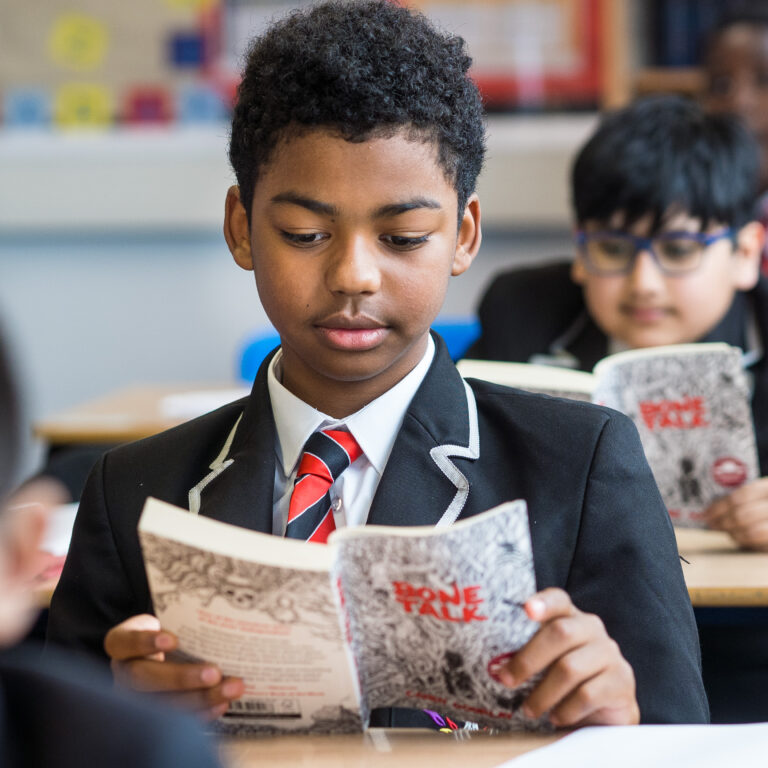English at Ernest Bevin Academy is regarded as the great leveller of the subjects; it is fundamental for enabling access for all. To quote Ofsted from its Moving English Forward 2012 report, ‘There can be no more important subject than English in the school curriculum’. English is the world’s lingua franca, it is at the heart of British and American culture and is deeply entwined with culture globally.
It is the language in which our students must learn to think, speak, and write in for their success both in and beyond the classroom. It is the language medium in which most of our pupils think and communicate. We see English as key to developing students’ literacy skills which gives them access to all other subjects. What’s more though, the discursive, analytical and philosophical elements that arise from the study of literature are essential in the formative years of individuals, as it helps people develop their sense of voice and agency by which they can engage with the complex and multifaceted ideas found in societies around the world; English, for us, is about both academic and personal growth.
Alongside humanities, we provide an inclusive approach to cultural capital, and in tandem with the sciences, aim to equip students with the knowledge, skills, and understanding to be active, problem solving, and resilient members of society who are governed by their own sense of autonomy.
At Ernest Bevin Academy, we recognise the competence all students must have in English; we understand the difficulty students will have of reaching a standard by which all are measured, and finally, we aim to be inclusive of the diverse backgrounds and abilities of students in our school, understanding that they bring with them rich knowledge and ways of learning. As such, we do not group students by ability , so that we can ensure access for all students by implanting the same challenging curriculum across an entire year group. We aim to provide a globally contextualised, literature rich curriculum that is locally focussed for our all of our students.
All English students begin their studies at Ernest Bevin Academy at KS3 by focussing on the big ideas of identity, relationships, social class, migration, and cultures from around the world in order to give students a chance to develop a love for English founded in a solid sense of self to help them begin to question the world around them. At this stage, we also introduce students to notions of good and evil through the ideas of tragedy and the gothic genre in Year 8. In Year 9, we introduce students to ideas of protest, government and power. This knowledge paves the way for a KS4 curriculum that focuses on the big ideas of power, conflict, social class and identity. Although the GCSEs in English only require students to read one novel, we believe in the power of fiction to build vocabulary, empathy, knowledge, and understanding of student’s place in the world. Together in shared reading, all students at Ernest Bevin, from Year 7, will read at least 10 novels before they finish their GCSEs.



